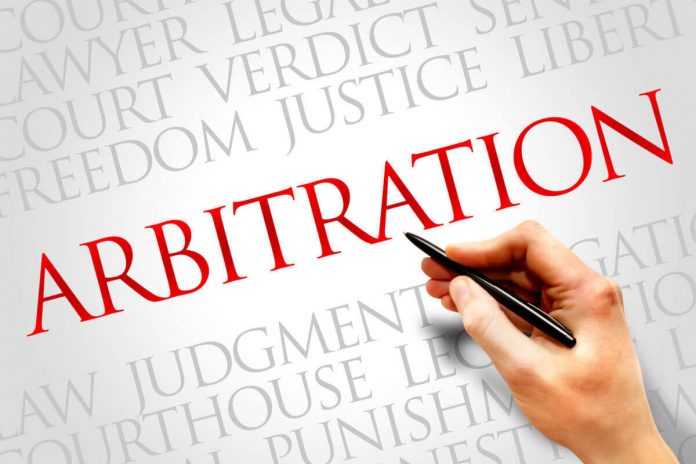This article is written by Advocate Aashish Chimnani (B.B.A LL.B) pursuing a Diploma in International Business Law from LawSikho. This article has been edited by Zigishu (Associate, Lawsikho).
This article has been published by Sneha Mahawar.
Table of Contents
Introduction
The importance of International Commercial Arbitration has been recognized all across the world. Litigation in the courts is costlier and time-consuming; it takes years to resolve disputes, whereas International Commercial Arbitration makes finality in the decision-making process quicker. The aim is to achieve the sole objective of resolving the dispute timely and efficiently with minimum intervention of a Court of Law so that trade and commerce are not affected on account of litigations before a Court.
This Article identifies Institutions that are located worldwide, seats in India and worldwide, enforcement of foreign awards, countries notified by the government, requirements of foreign arbitral awards, and much more information that may help you now or in the future.
International Commercial Arbitration
Section 2(1)(f) of the Act defines an International Commercial Arbitration (ICA) as a legal relationship that must be considered commercial, where either of the parties is a foreign national or resident, or is a foreign body corporate or is a company, association or body of individuals whose central government or control is in foreign hands.
The UNCITRAL Model Law on International Commercial Arbitration was adopted by the United Nations Commission International Trade Law (UNCITRAL) on 21 June 1985, at the close of the Commission’s 18th annual session. The General Assembly, in its resolution 40/72 of 11 December 1985, recommended “that all States give due consideration to the Model Law on International Commercial Arbitration, in view of the desirability of uniformity of the law of arbitral procedures and the specific needs of International Commercial Arbitration practice” In 2006 the model law was amended, it now includes more detailed provisions on interim measures.
History of arbitration in India
Until the Arbitration and Conciliation Act, 1996, the law governing arbitration in India consisted mainly of three statutes:
- The Arbitration (Protocol and Convention) Act, 1937 (“1937 Act”)
- The Indian Arbitration Act, 1940 (“1940 Act”) and
- The Foreign Awards (Recognition and Enforcement) Act, 1961 (“1961 Act”)
The 1940 Act was the general law governing arbitration in India and resembled the English Arbitration Act of 1934
The United Nations Commission International Trade Law (UNCITRAL) Model Law in 1985
Then the Arbitration and Conciliation Act was passed in 1996.
Provisions under the Arbitration and Conciliation Act, (1996)
- Part I of the Act deals with domestic arbitration and ICA when the arbitration is seated in India. Thus, arbitration seated in India between one foreign party and an Indian party, though defined as ICA, is treated akin to domestic arbitration.
- Part II of the Act deals only with the foreign awards, their enforcement under the Convention on Recognition and Enforcement of Foreign Arbitral Award, 1958 (New York Convention) and Convention on the Execution of Foreign Arbitral Awards, 1927 (Geneva Convention)
- Part III of the Act is a statutory embodiment of conciliation provisions.
- Part IV deals with the Supplementary Provisions.
- Section 8 regulates the commencement of arbitration in India.
- Section 3, 4, 5, 6, 10 to 26, and 28 to 33 regulate the conduct of an arbitration.
- Section 34 regulates the challenge to the award.
- Section 35 and 36 regulate the recognition and enforcement of the award.
- Section 1, 2, 7, 9, 27, 37, and 38 to 43 are ancillary provisions that either support the arbitration process or are structurally necessary.
- Section 10 to 33 of Part I of the Act, Contain the curial or procedural law of which parties would have the autonomy to opt-out of.
- The other chapters of Part I of the Act are from part of the proper law, thus making them binding to all the parties who are subjected to Indian Arbitration Law.
- Part II, on the other hand, regulates arbitration only with respect to the commencement and recognition/enforcement of a foreign award, and no provisions under the same can be derogated from a contract between two parties.
Institutions of International Arbitration worldwide
Following are the Institution of International Arbitration:
- The International Court of Arbitration at the International Chamber of Commerce (ICC);
- The Singapore International Arbitration Center (SIAC);
- The Hong Kong International Arbitration Center (HKIAC);
- The London Court of International Arbitration (LCIA); and
- The China International Economic and Trade Arbitration Commission (CIETAC).
International Commercial Arbitration seated in India
The Provisions of setting aside the Award as in section 34 are applicable. However, with The 2015 Amendment, the ground of Patent Illegality is taken away in cases of International Commercial Arbitration seated in India.
International Commercial Arbitration seated outside India
The applicability of the provisions of the Act on International Commercial Arbitration seated outside India is divided into two phases i.e. before the judgment of Bharat Aluminium Co vs Kaiser Aluminium Technical (BALCO judgment) and after the judgment.
Pre BALCO judgment: the position was that the provision of Part I of the Act will apply to the ICA seated outside India unless they are impliedly or expressly excluded by the parties.
Post BALCO judgment: Part I of the Act will not apply in case of foreign seated arbitration. The decision was given prospective effect and therefore applied to only arbitration agreements executed on or after September 6, 2012. If the arbitration agreement was executed before September 6, 2012, the necessary modification would have to be made in the arbitration agreement to be governed by the ruling BALO.
Amendment Ordinance 23.10.2015: Part I of the Act will not apply in the case of foreign seated arbitration except Sections 9, 27, and 37(1)(a) and 37(1)(3) unless a country’s intention appears in the arbitration agreement.
Enforcement of foreign awards in India
Part II of the Act applies to all foreign awards sought to be enforced in India and to refer parties to arbitration when the arbitration has a seat outside India. Part II is divided into two chapters, Chapter 1 being the most relevant one as it deals with foreign awards delivered by the signatory territories to the New York Convention which has reciprocity with India, while Chapter 2 is more academic as it deals with foreign awards delivered under the Geneva Convention. (As mostly all parties signatory to the Geneva Convention are now members of the New York Convention, Chapter 2 of Part II remains primarily academic)
A Foreign award under Part II is defined as (i) an arbitral award (ii) on differences between persons arising out of legal relationships, whether contractual or not, (iii) considered as commercial under the law in force in India, (iv) made on or after 11th day of October 1960 (v) in pursuance of an agreement in writing for arbitration to which the convention outlined in the first schedule applies and (vi) in one of such territories as the Central Government, being satisfied that reciprocal provisions made may, by notification in the Official Gazette, declare to be territories to which said convention applies.
So simply because a territory is a signatory to the New York Convention Part II Does not automatically apply.
There has to be further notification by the Central Government declaring that country to be a territory to which the New York Convention applies.
Countries notified by the Indian Government for ICA
About 48 countries have been notified by the Indian government so far, they are:-
Australia, Austria, Belgium, Botswana, Bulgaria, Central African Republic, Chile, China, Cuba, Czechoslovak Social Republic, Denmark, Ecuador, Federal Republic of Germany, Finland, France, Democratic Republic, Ghana, Greece, Hungary, Italy, Japan, Kuwait, Malagasy Republic, Malaysia, Mauritius, Mexico, Morocco, Nigeria, Norway, Philippines, Poland, Republic of Korea, Romania, Russia, San Marino, Singapore, Spain, Sweden, Switzerland, Syrian Arab Republic, United Kingdom, United Republic of Tanzania and United States of America.
Applicability of Part II (enforcement of certain foreign awards)
The following conditions must be satisfied:
- The award passed should be an arbitral award,
- It should be arising out of a dispute between the parties,
- The differences should be arising out of a legal relationship,
- The legal relationship should be considered commercial,
- It should be in pursuance of written agreement to which the New York Convention applies; and,
- The foreign award should be made in one of the aforementioned 48 countries.
Requirement of the foreign arbitral award to be enforceable under Act
- There has to be a “Written Agreement”;
- The Agreement must be Valid and Enforceable by Law;
- The award must be unambiguous.
Case laws
- Section 2 (1)(f) (iii) was determined by the Supreme Court in the case of TDM Infrastructure Pvt. Ltd. Vs. UE Development India Pvt. Ltd. 2008 (14) SCC 271 wherein, despite TDM Infrastructure Pvt. Ltd. Having foreign control, it was concluded that “A Company Incorporated in India can only have Indian Nationality for the Act.”
- M/s Larsen and Toubro Ltd. SCOMI Engineering BHD Vs. Mumbai Metropolitan Region Development Authority, 2018 SCC Online SC 1910 In that case where an Indian company was the lead partner in a consortium (which also included foreign companies) and was the determining voice in appointing the chairman and the consortium was in Mumbai, the Supreme Court held that the central management and control was in India.
- The award must arise out of Dispute in a “Commercial Transaction” In the case of RM Investment & Trading vs. Boeing Company the Supreme Court observed that the term “commercial” should be liberally constructed as having regard to manifold activities which are an integral part of international trade.
Conclusion
The growth of arbitration and conciliation has aided in the reduction of the transaction costs of business through a fast and speedy resolution of conflict among states, this was possible due to the nominal interference of the court, especially at the stage of enforcement of arbitral awards. One of the finest perks of arbitration is the expected speedy resolution of disputes. The New York and the Geneva Convention are some of the best outcomes of this which have created a simpler method to seek justice without the interference of local courts, and even these awards should be more modified by the growing needs of states.
Reference
- https://uncitral.un.org/en/texts/arbitration/modellaw/commercial_arbitration/status
- https://en.wikipedia.org/wiki/Arbitration_award#:~:text=From%20Wikipedia%2C%20the%20free%20encyclopedia,in%20a%20court%20of%20law
- https://singhania.in/blog/international-commercial-arbitration-between-india-and-united-states-of-america
- The Seven Most Famous Arbitration Institutions in the World – Soapboxie
- https://en.wikipedia.org/wiki/UNCITRAL_Model_Law_on_International_Commercial_Arbitration
- https://blog.ipleaders.in/evolution-arbitration-india-lack-of-professionalism/
- https://www.mondaq.com/advicecentre/content/3722/International-Commercial-Arbitration-Between-India-And-United-States-Of-America
- https://indiankanoon.org/search/?formInput=rm+investment+vs+boeing
- https://indiankanoon.org/search/?formInput=%E2%80%A2%09M%2Fs+Larsen+and+Toubro+Ltd.+SCOMI+Engineering+BHD+Vs.+Mumbai+Metropolitan+Region+Development+Authority
- https://indiankanoon.org/search/?formInput=TDM+Infrastructure+Pvt.+Ltd.+Vs.+UE+Development+India+Pvt.+Ltd.
- https://articles.manupatra.com/article-details/Arbitration-Clause-and-International-Contracts-An-Analysis
Students of Lawsikho courses regularly produce writing assignments and work on practical exercises as a part of their coursework and develop themselves in real-life practical skills.
LawSikho has created a telegram group for exchanging legal knowledge, referrals, and various opportunities. You can click on this link and join:
Follow us on Instagram and subscribe to our YouTube channel for more amazing legal content.
 Serato DJ Crack 2025Serato DJ PRO Crack
Serato DJ Crack 2025Serato DJ PRO Crack










 Allow notifications
Allow notifications


